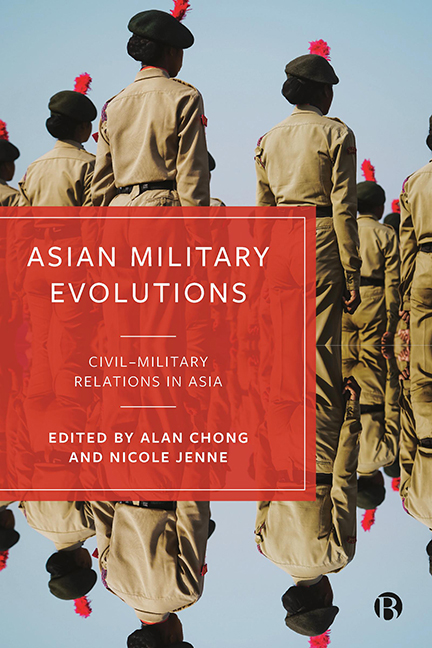Book contents
8 - The Stubborn Illiberalism and Trialectical Dynamics of Thailand’s Civil–Military Relations
Published online by Cambridge University Press: 18 January 2024
Summary
When former Thai general, coup-maker and junta leader Prayuth Chan-ocha swore an oath of loyalty to Thailand’s monarch following the 26 March 2019 election, he and his cabinet omitted a pledge to ‘uphold and observe the Constitution of the Kingdom of Thailand in every respect’ (‘Ombudsman refers oath blunder to Constitutional Court’, Bangkok Post, 27 August 2019). To this date, the omission has not been rectified and the Constitutional Court refused to accept a case on its unconstitutionality. If it were needed, after 18 coups producing 19 constitutions (Harding and Leyland, 2011, p xxx), the absent oath eloquently conveyed the uncertain place of constitutional law in the governance of Thailand, particularly in the eyes of its two most important institutions, the military and the monarchy.
Western civil–military relations, and especially the principle of civilian control of the military, reside in a framework in which rule of law is fundamental. It is law that defines the relations between civilian and military leaders. So what kind of rule of law applies in Thailand? While Thailand formally adopted a Western criminal code in 1908, and established a Constitutional Court in 1997, Thailand’s practice of law remains far from that of Western states (Wise, 2019). This applies at the top echelons of the legal system, with judges demonstrably unable to truly accept the constitution as the highest law. It also applies in civil matters, with northern Thais preferring Buddhist ethics and karmic justice to courts and litigation for dealing with the wrongdoings encountered in their daily lives. This is not to say that Thai rule of law is unchanging. The reforms of 1997, including the establishing of independent organizations such as anti-corruption and electoral commissions, and indeed the constitutional court, have brought the law into new spheres and established new norms.
The relative weakness of rule of law and especially constitutionalism, however, reflects the enduring coexistence of modern and traditional notions of legitimacy in governance. Some observe that Thailand’s history, as a polity never formally colonized, has provided greater scope for continuity with its pre-colonial past (Wise, 2019, p xvi).
- Type
- Chapter
- Information
- Asian Military EvolutionsCivil-Military Relations in Asia, pp. 149 - 169Publisher: Bristol University PressPrint publication year: 2023



